There is, at this point, absolutely no need to remind people that nature is pretty awesome. Pink manta rays, bioluminescence and dolphins, frozen lake waves, growing yeast—the list goes on and on.
Joining this list are green sea turtles. The Queensland Government recently posted footage on its Queensland Environment Twitter account of thousands of green sea turtles nesting just off the coast of Raine Island, calling it one of the most spectacular sights people will ever see.
Researchers were struggling to conclude accurate green sea turtle population counts… until now
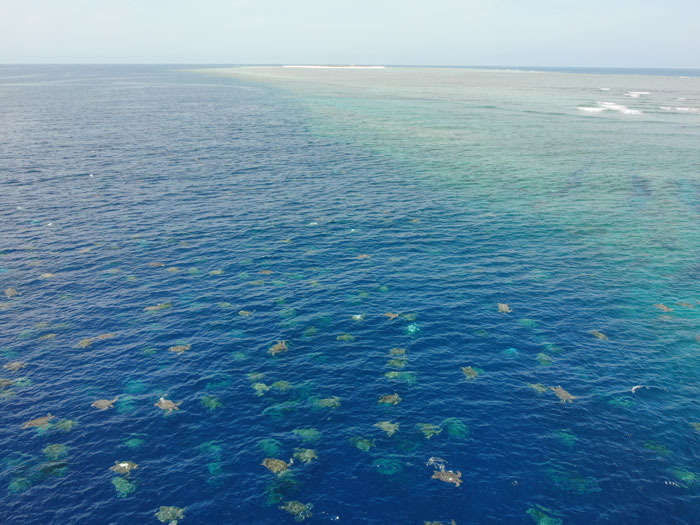
Image credits: Great Barrier Reef Foundation and Queensland Government
Back in December of 2019, Researchers took advantage of drone tech to conduct some population surveys at Raine Island, a vegetated coral cay around 32 hectares in total area, located on the outer edge of the Great Barrier Reef and roughly 620 kilometers (390 miles) northwest of Cairns, Queensland, Australia.
The captured footage shows an estimated 64,000 green sea turtles nesting in their rookery (scientific term for nesting grounds) on Raine Island, either waiting to come ashore to lay eggs, or already doing so onshore.
The Queensland Government posted a video on showing vast numbers of turtles off the shoe of Raine Island
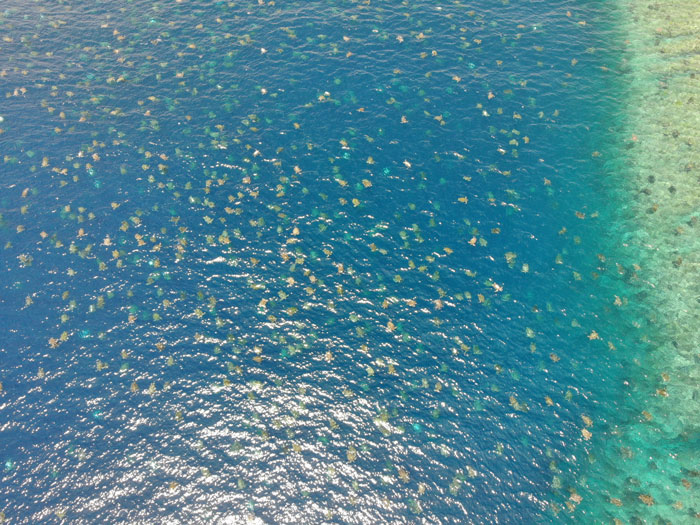
Image credits: Great Barrier Reef Foundation and Queensland Government
This is a part of the Raine Island Recovery Project that aims to protect and restore the island’s habitat
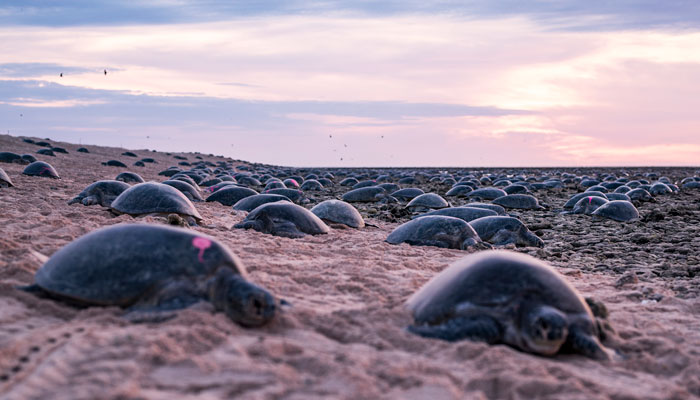
Image credits: Christian Miller
You see, green sea turtles are a threatened species (endangered status) due to a number of factors: relentless hunting, poaching, and egg harvesting as well as boat strikes, fishermen’s nets that lack turtle excluder devices, pollution, and loss of habitat. So scientists are keeping a close eye on their populations in hopes of helping the species to survive.
“Previous population survey methods involved painting a white stripe down the green turtles’ shell when they were nesting on the beach. The paint is non-toxic and washes off in a couple of days,” explained Dr. Andrew Dunstan of the Department of Environment and Science (DES) in a Queensland Government public media release.
Drone footage is gathered in hopes of identifying the exact numbers of the green sea turtles
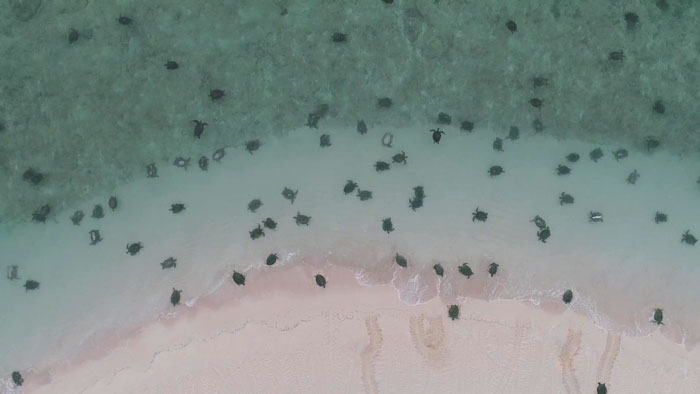
Image credits: Queensland Government
Based on the video, researchers estimate there’s around 64,000 green sea turtles in the Raine Island area
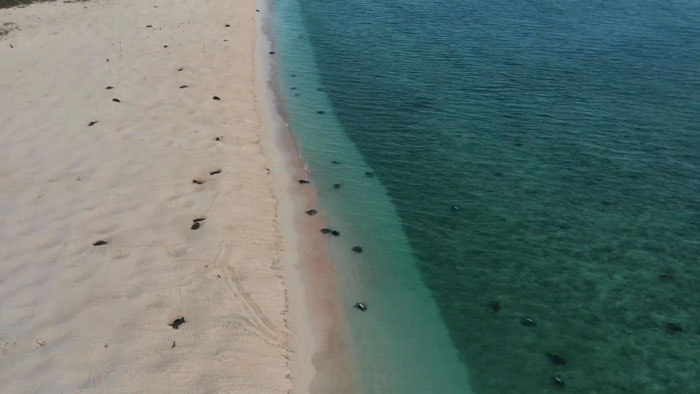
Image credits: Queensland Government
He continued: “From a small boat, we then counted painted and non-painted turtles, but eyes are attracted much more to a turtle with a bright white stripe than an unpainted turtle, resulting in biased counts and reduced accuracy. Trying to accurately count thousands of painted and unpainted turtles from a small boat in rough weather was difficult. Using a drone is easier, safer, much more accurate, and the data can be immediately and permanently stored.”
The drone footage was soon analyzed frame by frame in a laboratory, this way making sure there was minimal observer error. Researchers have estimated based on the videos that there are around 64,000 green sea turtles waiting to nest on the island.
Raine Island is one of the key nesting locations where green sea turtles come to lay their eggs
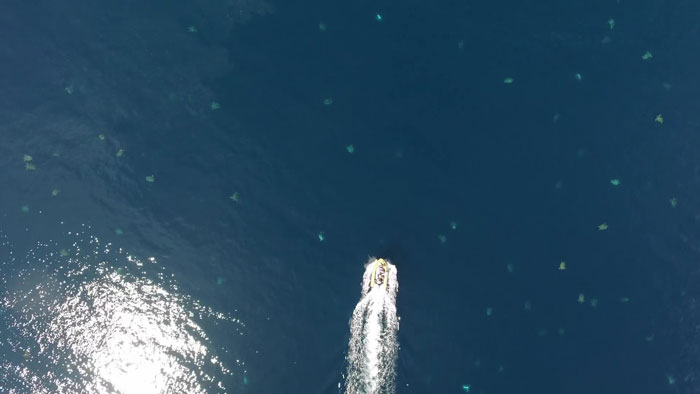
Image credits: Queensland Government
The nesting grounds at Raine Island are considered the world’s largest aggregation of green turtles
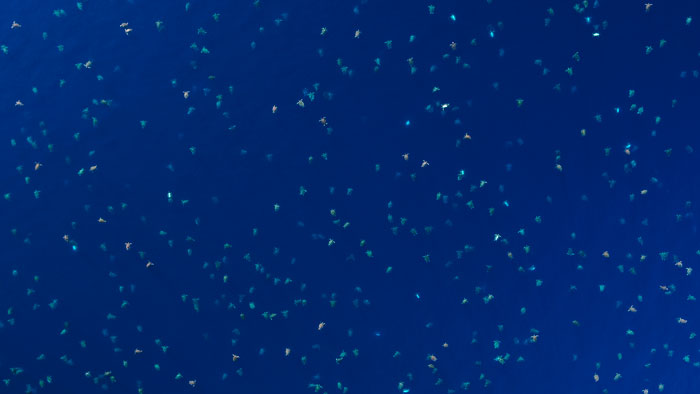
Image credits: Christian Miller
By using drones, scientists were able to compare current numbers with the observer counts, concluding that the number in the past was underestimated by a factor of 1.73. Besides the improved accuracy, counting is now done much faster, saving a lot of precious time in the field and minimizing their potential impact on nature in the process.
The nesting grounds at Raine Island are considered the world’s largest aggregation of green turtles, so the drone footage is also a rare glimpse into this phenomenon.
Until now, populations were counted using boats, which isn’t as ideal as a wide over-head view of a drone
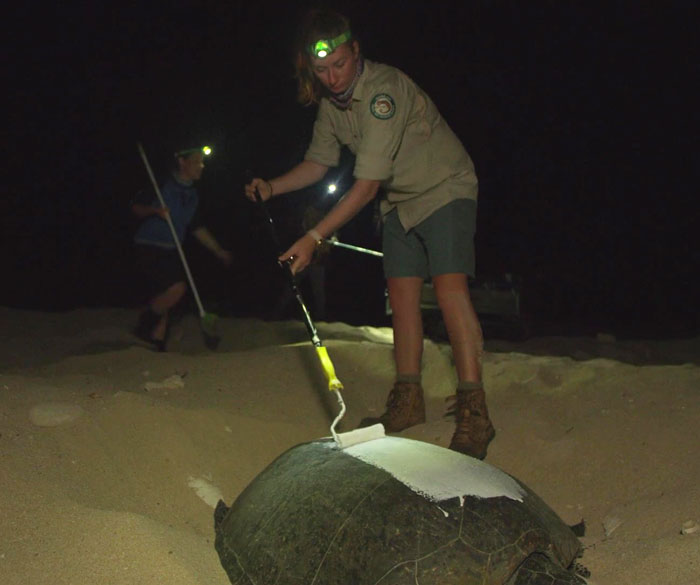
Video credits: Queensland Government
Check out the video of the spectacular phenomenon as captured in December, 2019
The Raine Island Recovery Project is a five-year, $7.95 million collaboration between BHP, the Queensland Government, the Great Barrier Reef Marine Park Authority, Wuthathi and Kemer Kemer Meriam Nation (Ugar, Mer, Erub) Traditional Owners, and the Great Barrier Reef Foundation. It aims to protect and restore the island’s critical habitat to ensure the future of key marine species, including green turtles and seabirds.
Bored Panda has reached out to the Great Barrier Reef Foundation who are currently in the process of responding, so stay tuned for an update. However, they did provide us with a little bit more video footage which you can find below.
You can learn more about the projects by visiting the Queensland Government and the Great Barrier Reef Foundation websites. But before you go, let us know what you thought of this! Do you also think turtles are awesome? Let us know in the comments section below!
The Great Barrier Reef Foundation also provided us with the following footage on how they counted the turtles
Click to unmuteVideo credits: Biopixel (footage provided by the Great Barrier Reef Foundation)
For more info on Raine Island, turtle breeding grounds, and the issues threatening their survival, check out the video below
Video credits: Queensland Environment







0 Yorumlar